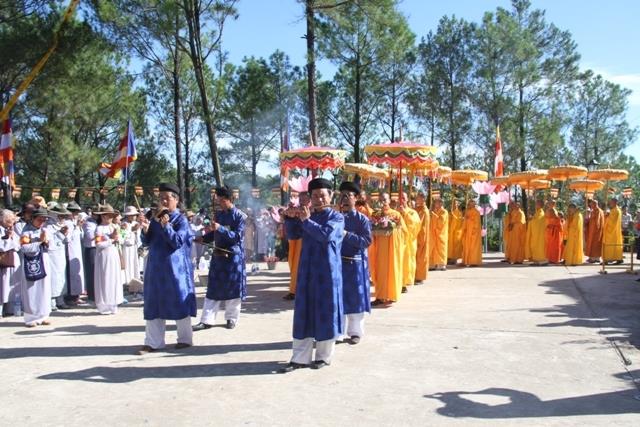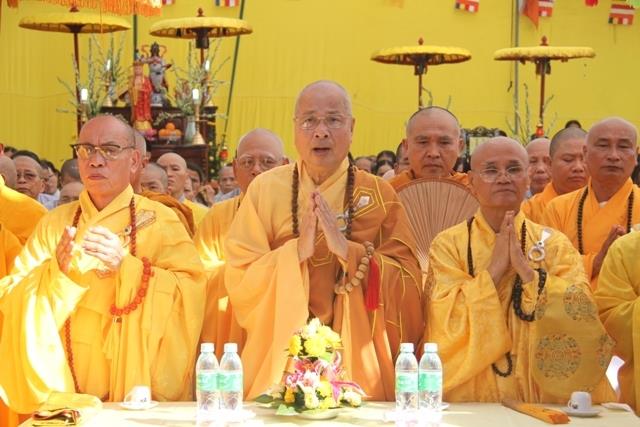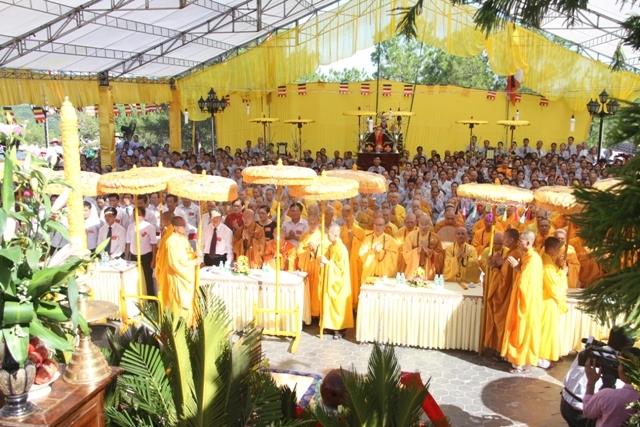The Bodhisattva festival is one of traditional festivals in Hue which is organized annually. The festival was taken place in July 14 and 15, 2014. There were a plenty of activities following Buddhist rites organized such as a ceremony praying for peace, prosperity and happiness for the nation with balloon and pigeon releases, medication courses, and cultural activities and so on. The festival was honored to welcome the presence of Mr. Tran Phung - a member of Standing Committee, other leaders, thousands of religious clergies, elder monks, nuns, as well as local and foreign tourists.

The Bodhisattva festival is one of big festivals in Vietnam. In fact, Hue is not the only one place in the country often organizing this festival. Except from Hue, Da Nang also successful took place the festival from March 17 to March 19, 2014. Nha Trang city (Khanh Hoa province) also held the festival at the same time with Hue.

Bodhisattva Avalokitesvara in Buddhism is considered as the embodiment of the truth, compassion, love, charity and equality. Therefore, the image of Bodhisattva is quite close to the spiritual life of Vietnamese people for a long time. The Bodhisattva festival in Hue this year is to celebrate the birthday of this God and pray for the national prosperity, the everlasting religion and the world's peace. A venerable Thich Khe Chon, Deputy Head of Thua Thien Hue Permanent Executive Board, stated that "The Bodhisattva festival is the clear evidence for a culture imbued with the national identity of Vietnam. It is also the inseparable combination between the nationalist sentiment and the religion."

In addition, on behalf of the authorities, Mr. Nguyen Tai Tue highly appreciated the efforts of the dignitaries, monks and Buddhists in preserving the cultural identities and promoting the essence of Buddhism in the construction of human life.
The Bodhisattva festival has the important meaning in Vietnamese spiritual life in general and Hue citizens in particular. The festival reminds people enhancing the responsibility in building the country become more and more prosperous and peaceful. It also aims to enrich and preserve the spiritual culture of the imperial city which was recognized as the World Heritage by UNESCO in 1993.